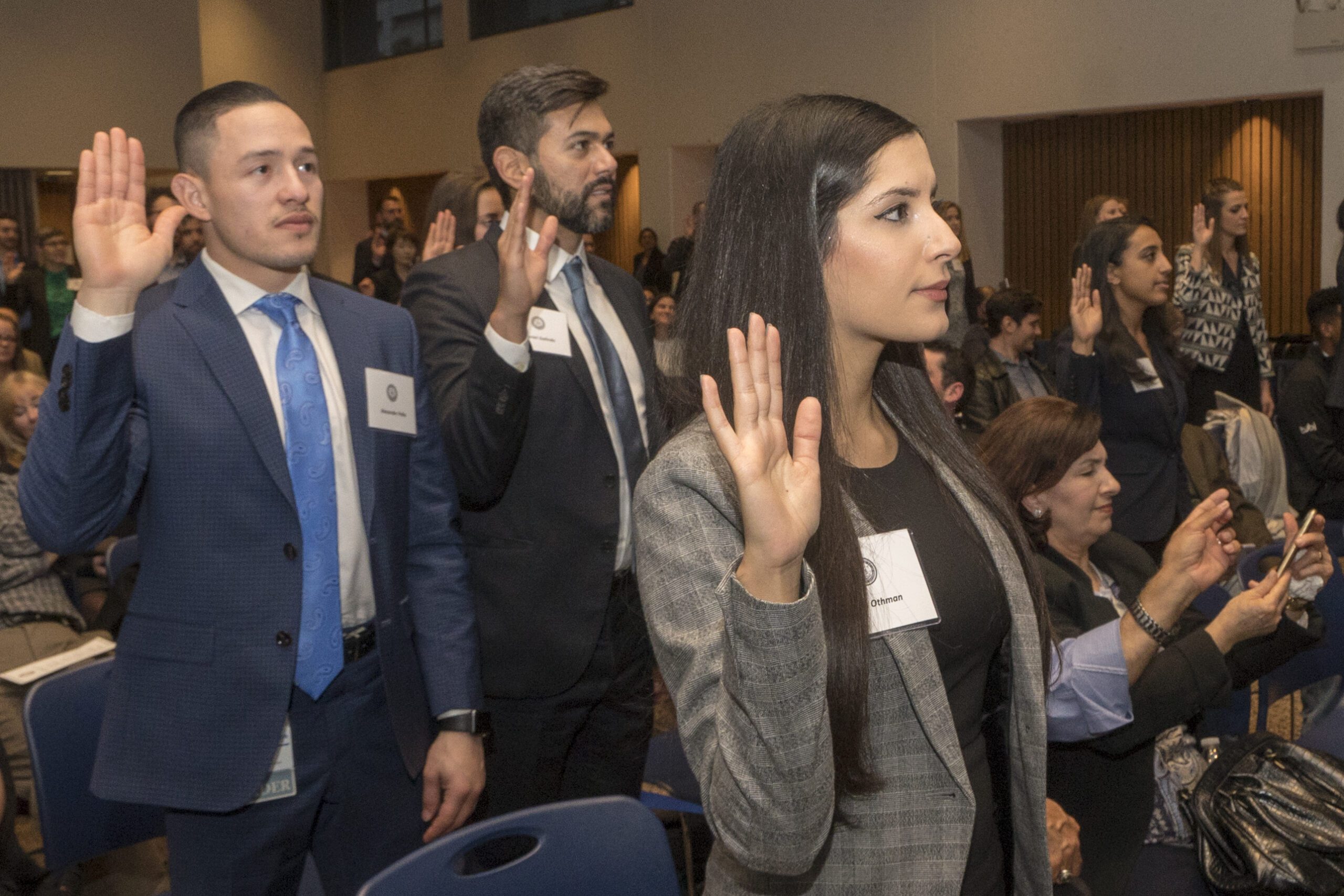Mentor Program Helps UC Law SF Grads Pass Bar Exam

UC Law San Francisco graduates were sworn in to the California Bar during a 2018 ceremony after passing the bar exam.
Natalie Thompson ‘22 was starting to panic. Midway through her bar exam prep course, she began to spiral, worrying if she had enough time to learn every subject and get through all the practice exams.
She and two classmates, who were also holed up studying, reached out to their civil procedure professor and mentor, Stefano Moscato. He was already keeping them on track with bi-monthly Zoom meetings, but they needed more. So, the obvious answer was to meet for coffee.
Moscato met the students at a cafe in Berkeley, where he offered advice and supportive words. Thompson admits they still vented about their courses, but they were thrilled to step away from their bar prep books and go outside.
UC Law San Francisco’s graduates’ success on the bar exam is in no small part due to the Faculty Bar Passage Mentor Program – where experienced law professors volunteer to serve as personal mentors to graduates studying for the bar exam.
“The Faculty Bar Passage Mentor Program is designed to provide graduates with the opportunity to check in regularly with faculty mentors during the bar review period. Mentors act as coaches and provide graduates with practical advice and encouragement,” said Margaret Greer, UC Law SF’s Director of Bar Passage Support.
Tori Timmons ‘21, an academic skills lecturer at UC Law SF, is a recent graduate who said she felt seen by her mentor. “He could simultaneously validate that bar prep was difficult while reminding me that I was hardworking and capable and that this was a culmination of my work as a law student,” she said. She believes she survived and thrived during bar exam prep because her mentor reminded her to embrace the challenge and enjoy the learning.
As Professor Mai Linh Spencer explained, everyone studies for the bar exam in their own way and needs something different from their mentor. Her job is to provide support and accountability — in different proportions for each mentee. She offers group Zoom meetings, weekly emails to ask questions or report progress, treats of coffee or lunch to check in with an empathetic ear, and sends encouraging support messages and occasional stern admonitions.
“As a law professor, my job is to help my students transition into professionals, and this includes passing the bar exam,” Spencer said.
For Jennifer Freeland, the associate dean who heads the Office of Academic Skills Instruction & Support (OASIS), it is rewarding to mentor her students through what can be an isolating experience. She noted that the bar exam takes an intense amount of studying over the course of several months, and it all comes down to a couple days of testing. It can feel insurmountable. “Having someone listen and validate what is happening can be so powerful,” she said. “It is important for students to remember that they can defeat the exam!”
Thompson recommends all her fellow first-generation law students get at least one bar mentor to share their insight and experience. “Not many people can understand the stress of bar study and the sheer amount of self-motivation and dedication required,” she said. “Sharing a mentor with my friends was a nice way for us to motivate each other and remind ourselves that there was still life outside of bar prep.”